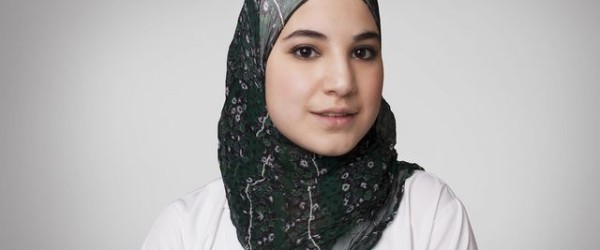I am incredibly proud of Iqbal Al Assaad. The news of her being possibly one of the youngest doctors in the world has been in and out of the media over the last few years. Her story is not a new one and it remains inspiring and yet tainted at the same time. Assad excelled in her education, skipping grades, winning the support of scholarships for her education and was called a ‘child prodigy’. For her, ‘the sky is the limit.’
Assaad, a Palestinian refugee raised in Lebanon, had aspirations to become a doctor after witnessing the plight of her fellow Palestinians in refugee camps who had no access to medical treatment. Assaad says, ‘These visits to the camps made me feel that it is my responsibility to study medicine and try to help these people.’
However, it seems there is a limit. Assaad’s dream of helping Palestinian’s in Lebanon or her homeland is currently impossible. She cannot return to Palestine and in Lebanon, Palestinian refugees are not allowed to work as doctors.
With the number of refugees increasing, (figures for 2013 showed a total of 51.2 million refugees, asylum-seekers and internally displaced people), the issue of integration into societies becomes increasingly more relevant and important. Instead of 51.2 million refugees, why can we not view the figure instead as a potential number of doctors, nurses, teachers, engineers and other such positive contributors to society?
An article by The Economist discussed the refugee crisis as a ‘potential solution’ for the much needed younger workers in an ageing European workforce, with many refugees having ‘secondary schooling and even university-level education’. Sweden for example has ‘identified 1,700 teachers among its newly arrived refugees.’ These refugees will be fast tracked into teaching at Swedish schools, focusing particularly on locations which have an influx of refugee children in their classes. By utilizing their skills, they can better integrate into society whilst educating the next generation with perhaps a more global insight into what is now a global world.
So what about the rest of the world? If in the words of Former UK Prime Minister Gordon Brown, “The human body…cannot survive a second without hope, and education is about hope,”, then what about hope after education? IBT learned that most refugees coming from Syria into Europe are ‘not welcome’ and face not only ‘discrimination in the work place’ but also ‘racist violence, ranging from arson attacks to street riots.’ The ‘notion that refugees are “taking away jobs” or placing an unnecessary burden on the economy is not supported by the facts.’
Articles with headlines such as The Daily Mail’s, ‘Migrants: How many more can we take?’ or The Sun with, ‘Illegals have landed’ with the caption reading, ‘Boatloads…seek back door to UK’ fuel a divisive rhetoric. This scaremongering is not only limited to newspapers. Some ‘Far Right U.K groups call for massive protests against Syrian refugees.’ They are also tweeting about it, using the overtly racist hashtag, #EnglishBlood. I am not sure what they mean by that considering the diverse make up of England now. Media outlets and political groups have historically used crises to help fund their own agendas. They should be held accountable for racist inciting policies. Negatively labelling millions of people into one category is harmful and unhelpful. Displaced persons can and do contribute successfully to society, if those societies give them the opportunity and means to do so.
When do we hear of the success stories of refugee integration both historically and today? A Dutch foundation, UAF helps highly skilled refugees to prepare for work. One example they give of a success story is an ‘Iraqi cardiologist who learnt Dutch in six months and now works as a surgeon.’ And what about the Assaad’s of this world who are driven by their dreams of helping others? After her residency in Ohio, Assaad wants ‘to go back to Lebanon to help my Palestinian people and I would like to fulfil my childhood dream to make a difference to their lives.’ I hope that she is able to work with Palestinian refugees in Lebanon but at the moment it doesn’t seem possible. What a shame it is that her refugee status overrides that of being the youngest doctor in the world. Now is the time we need to rethink this labelling.


1 Comment
[…] Read the full article via Muslimah Media Watch […]